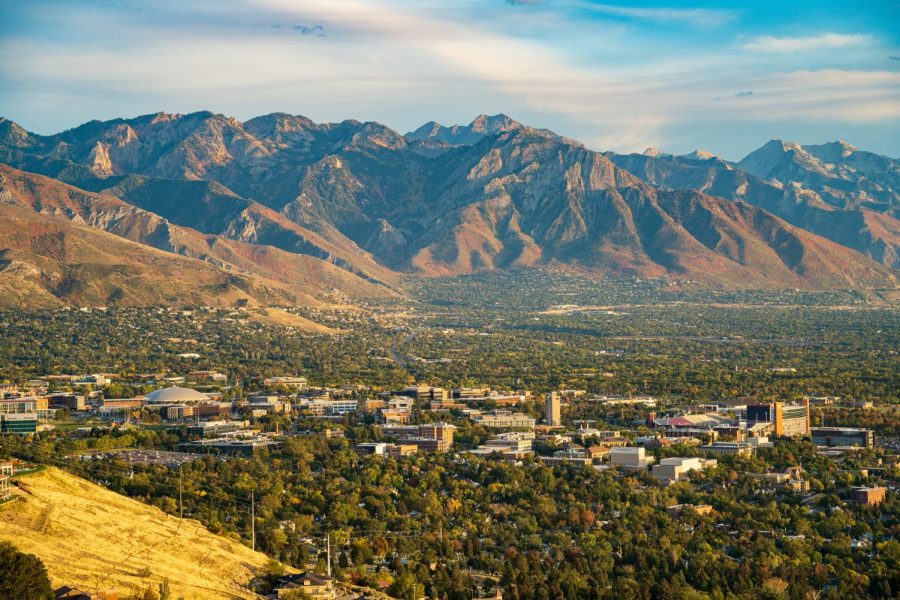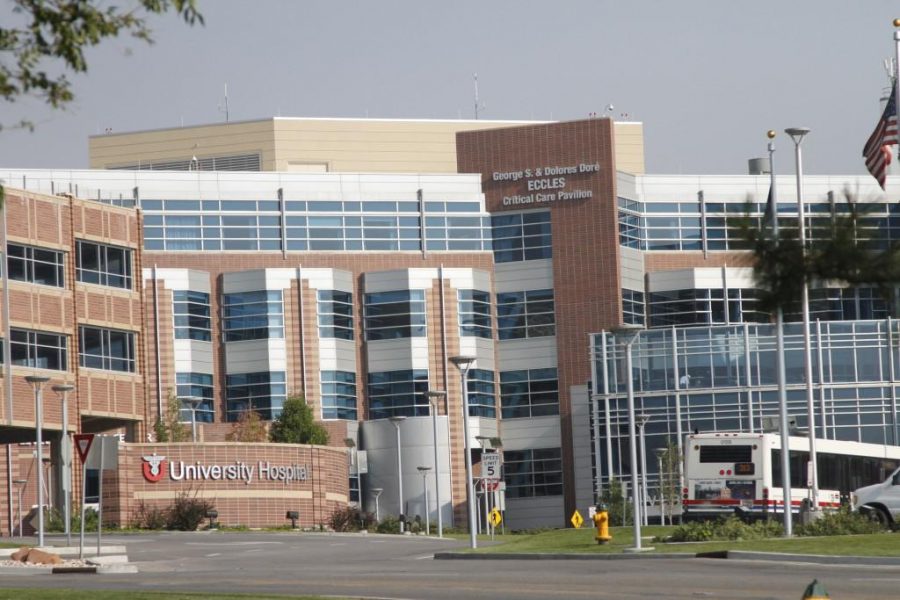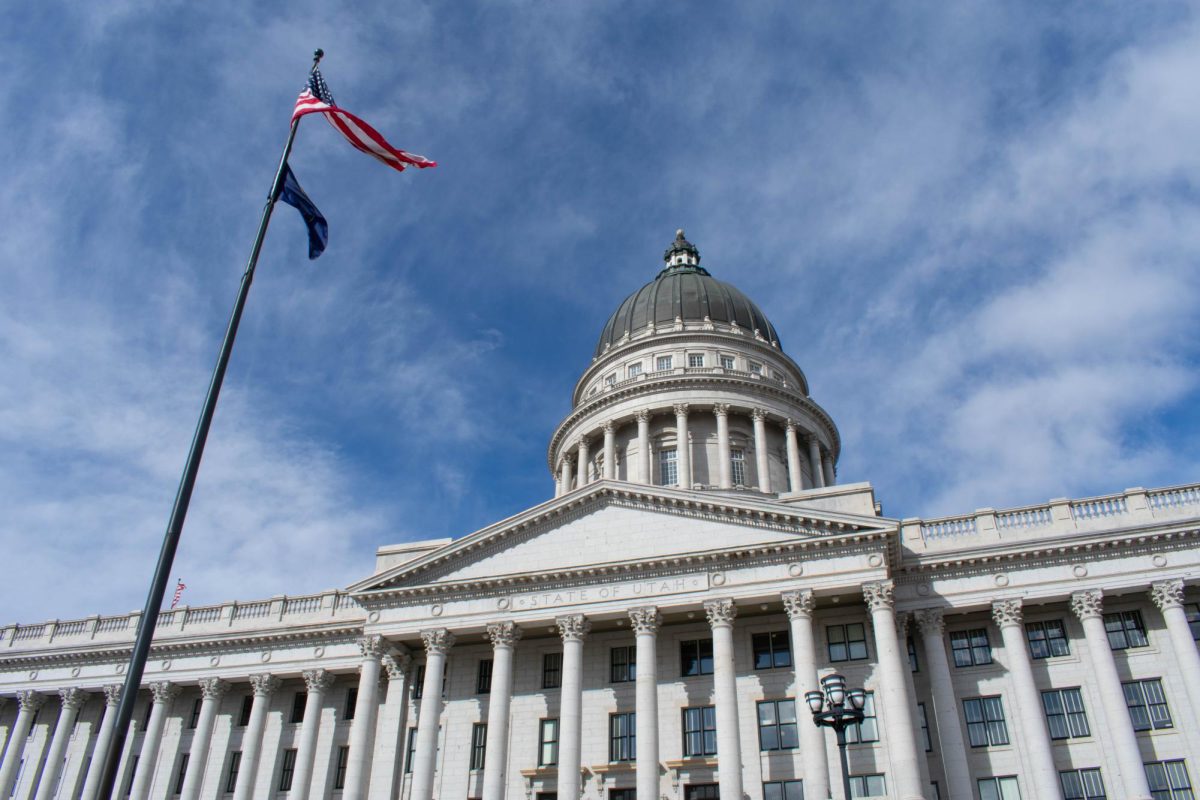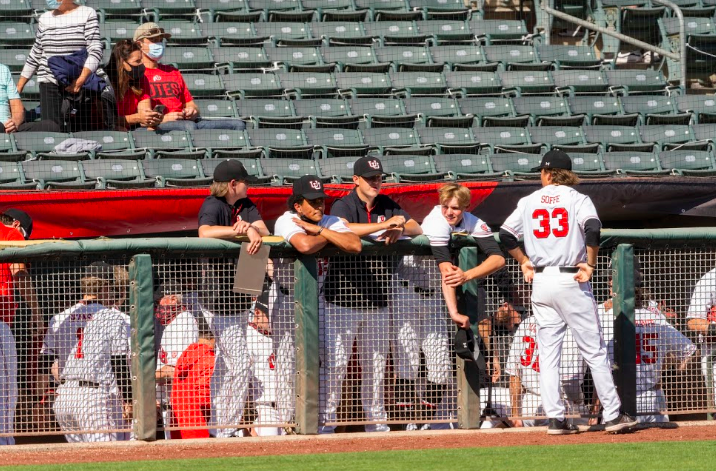Several Salt Lake Businesses Strike Over Pay and Staffing Shortages
The University of Utah campus in Salt Lake City, Utah on Oct. 5, 2021. (Photo by Xiangyao “Axe” Tang | The Daily Utah Chronicle)
April 15, 2023
Over the past few months, several different strikes have taken place around Salt Lake City. Several Starbucks stores around the city have been striking since November 2022, and more recently the Salt Lake Veterans Affairs union hosted one over inadequate pay and staffing shortages.
An increasing amount of strikes in the city is likely due to the low unemployment rate that Utah is experiencing, according to Peter Philips, professor of economics at the University of Utah. Because of this, workers aren’t willing to deal with as much mistreatment as they would if the unemployment rate was high, he explained.
“When unemployment rates are low, wage workers have options and one option is to quit your job and go find another job if you’re unhappy,” Philips said.
On March 22 this year, Starbucks on 400 South held a strike.
From March 2021 to March 2022, employment rose in the five largest counties in Utah, and national employment has grown 5% in the last year, according to the U.S. Bureau of Labor Statistics.
Before employees reach the point of striking, they usually instead try to negotiate with their employers, and strikes are often only reached if nothing else works, said Eunice Han, professor of economics at the U.
“A strike is probably the last resort the employees can take,” Han said. “They probably complain and try to talk to somebody but every effort they try to do is probably denied or rejected.”
On top of a low unemployment rate, the economy in the urban areas of Utah is flourishing as people from outside states, such as California and Texas, continue to move here, said Philips, as raising prices while wages and working conditions stay the same.
“When you have an underlying economy that is booming, as Utah’s is at the moment, one of the results of that is that there are housing shortages, and people from other places where the economy’s not doing so well may turn to come here now,” Philips said. “When that happens, the demand for housing can outpace the supply because there’s a lag and so that’ll drive up rents.”
While strikes are continuing to take place and make headlines, this trend isn’t a new one in Utah, and has existed in public sector industries for much of the state’s history, said Philips; only recently has the trend spread to private sector businesses.
“Utah has a long history of unionization, but that’s been primarily in mining,” Philips said. “When you start thinking about Starbucks or other service sector segments of the economy getting unionized, that’s a new thing, but it’s not surprisingly new. It reflects the evolution of the Utah economy.”
The recent Starbucks and Veterans Affairs strikes could potentially have an effect on other businesses around the city, said Philips, inspiring them to stand up for fair working conditions.
“If union organizing and or strikes are successful, they make it emulated and so there could be a wave of union organizing associated with the success of the leading efforts to organize,” Philips said. “I don’t think the broader economy will get affected, but it would not be surprising that if these efforts are successful, others try themselves.”
Han said strikes that happen at different organizations and businesses usually eventually stop, but if the employees aren’t satisfied, these small protests will happen again in the future until a compromise is reached.
“If [employees] don’t get what they want with these strikes, it may stop for now, but it could happen again later on,” Han said. “There’s going to be ongoing pressure between employees and employers.”











